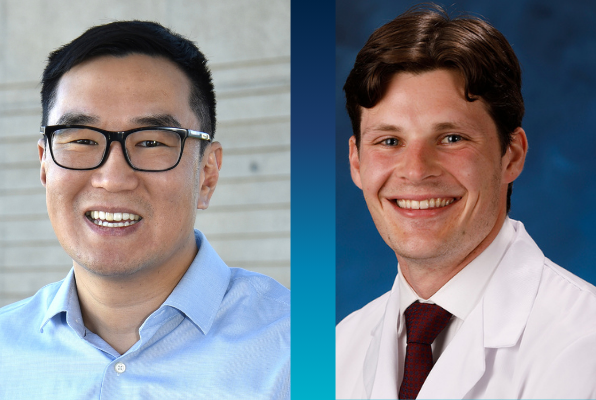
Irvine, Calif., January 6, 2025 — In a significant advancement for understanding genetic diseases, researchers from the UC Irvine Charlie Dunlop School of Biological Sciences have developed a groundbreaking technology to pinpoint which non-coding genetic variants contribute to human disease. The study, recently published in Nature Communications, was led by Assistant Professor Evgeny Kvon and lead author Ethan Hollingsworth.
The challenge at the heart of human genomics is identifying harmful mutations hidden in the vast “non-coding” regions of our genome — DNA sequences that don’t produce proteins but regulate when and where genes are active. Even subtle disruptions in gene regulation by these non-coding mutations can lead to profound effects and cause disorders like autism and birth defects. Until now, determining which non-coding variants are functional and disease-causing was slow, imprecise and often required months of testing.
The research team developed dual-enSERT, a powerful new method that allows scientists to quickly measure the effects of non-coding DNA mutations in live mice. By testing these mutations in less than two weeks, dual-enSERT enables researchers to determine whether a specific genetic change alters the normal function of a gene. The new method also identifies the exact cell type in which non-coding DNA mutation alters gene function.
Professor Evgeny Kvon underscored the significance of this breakthrough: “One of the most challenging problems in human genomics is finding non-coding genetic variants that are functional and disease-causal in the sea of potential ones. Our new technology significantly increases the accuracy and speed of assessing which non-coding variants potentially cause genetic disease. In just under two weeks, we can test if a variant affecting an enhancer alters gene expression or not.”
To demonstrate its utility, the team tested genetic variants previously linked to autism spectrum disorder, cleft lip palette, and limb defects. They successfully identified mutations linked to autism that likely disrupt the activity of genes critical for neuronal development, providing new insights into potential disease mechanisms.
Looking forward, Hollingsworth emphasized the need to expand the technology: “A remaining challenge is scaling up this technology for testing a larger number of non-coding genetic variants from patients.” By addressing this, dual-enSERT could unlock answers for countless unexplored genetic mutations.
The implications of this research are far-reaching. Rapidly identifying disease-causing variants opens new avenues for diagnostics, targeted therapies and personalized medicine. It also brings us closer to understanding — and eventually preventing — complex disorders that have long baffled scientists.
About the University of California, Irvine Charlie Dunlop School of Biological Sciences:
Recognized for its pioneering research and academic excellence, the Charlie Dunlop School of Biological Sciences plays a crucial role in the university’s status among the nation’s top 10 public universities, as ranked by U.S. News & World Report. It offers a broad spectrum of degree programs in the biological sciences, fostering innovation and preparing students for leadership in research, education, medicine and industry. Nestled in a globally acclaimed and economically vibrant community, the school contributes to the university’s impact as Orange County’s largest employer and a significant economic contributor. Through its commitment to exploring life’s complexities, the Dunlop School embodies the UCI legacy of innovation and societal impact. For more on the Charlie Dunlop School of Biological Sciences, visit https://www.bio.uci.edu/.
